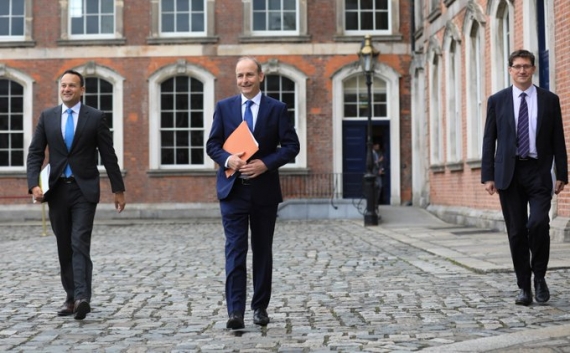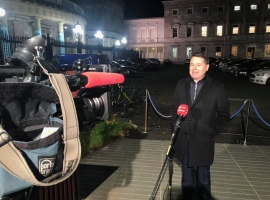
Ireland will hand firms hit by the COVID-19 crisis more generous grants, extend a wage-subsidy scheme keeping many afloat and aim to boost domestic tourism with "staycation vouchers" as part of a fresh stimulus package announced on Thursday.
Ireland has reopened its economy at a slower pace than most EU countries and last week delayed the final phase until Aug. 10 as an infection rate that still remains among the lowest in the bloc crept up a touch.
The plan, which will inject a further 5.4 billion euros into an economy forecast to contract 10% in 2020, also includes a boost to infrastructure spending, an extension of a commercial rates waiver and a temporary cut to the standard rate of VAT to 21% from 23% for six months from September.
"This is an unprecedented set of measures required by unprecedented times," Prime Minister Micheál Martin told a news conference.
The package comes on top of an estimated 9 billion euros of direct state funds committed since March, mainly through jobless payments and wage subsidies, and a further 7 billion euros in indirect supports via guarantees, loans and deferments.
That is equivalent to close to half the 49 billion euros the government expects to collect in taxes this year.
The spending is forecast to turn 2019's budget surplus into a deficit of up to 10% of gross domestic product this year. Tax returns have so far held up far better than expected during the pandemic, giving the new coalition government more options in its first major response.
With Ireland also adopting a more cautious approach than most to international travel, the staycation voucher will allow consumers claim a tax refund of up to 125 euros on food and accommodation during the October to April 2021 off season.
The wage subsidy scheme, where the state has been covering up to 85% of employees' pay, will become a permanent scheme and run in its current guise until April 2021, when a separate emergency welfare scheme will also be tapered off.
The subsidy scheme is expected to support some 350,000 jobs, or almost 15% of the labor force, into the beginning of 2021, the government said.
A further 22% were temporarily or permanently unemployed at the end of June, though that number is set to fall sharply this month, based on government data. (Reuters)
Source: www.businessworld.ie
















